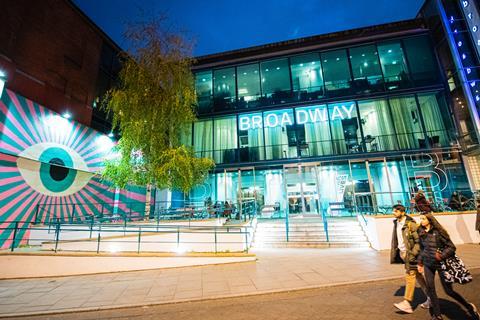
UK cinema venues contribute positively to the welfare of their attendees according to a study from British Film Institute (BFI) and Creative PEC (Creative Industries Policy and Evidence Centre), with the six cinemas in the study delivering significant and positive wider societal value of £600,000 benefit per venue each year.
This is in addition to the £1.2m that it has been previously estimated that the average cinema in the UK creates through added value to the economy through ticket, other sales and membership.
The first-of-its kind report also establishes cinema usage is likely to drive footfall and spending in other venues, indicating that cinemas can make an important contribution to revitalising high-streets, and that cinemas drive pride-in-place for local communities.
“We at the BFI have always implicitly understood and championed the myriad ways in which cinemas deliver valuable and enriching experiences,” said the study’s foreword, written by Rishi Coupland, the BFI’s director of research and industry innovation and Ben Luxford, director of UK audiences.
“They are social spaces, and through programming can offer opportunities for community cohesion and individual exploration and learning. They often drive commercial activity that supports surrounding businesses, and are an important source of pride-in-place. But until now there has been no robust analysis to evaluate the wider range of valuable and enriching experiences that cinemas provide.”
Ipsos carried out the study in partnership with Nordicity and the Bennett Institute (University of Cambridge). Survey responses were collected from 2,126 cinema users spread across the six cinema venues: Vue, Glasgow Fort; Light Cinema, New Brighton; Ritzy Picturehouse, Brixton; Everyman, Cardiff, Broadway, Nottingham; and Cameo Picturehouse, Edinburgh.
These venues were all chosen for having a ‘cultural value’ offer over in addition to their mainstream cinema programming, defined as: operating in a cinematic or cultural ‘cold spot’ with no alternatives within a 5km radius (Vue, Glasgow Fort and Light Cinema, New Brighton); offering a destination café, bar or restaurant as a ‘social hub’ (Ritzy Picturehouse and Everyman, Cardiff); and/or providing ‘diverse programming’ (Broadway, Nottingham and Cameo Picturehouse, Edinburgh).
Respondents must have attended one of the six selected cinema study sties in the past five years. The results measured a ‘Willingness-To-Pay’ (WTP) for the six venues as a donation over and above the ticket prices to see the venue continue its current offerings, of an average of £18.04 per person.
This ranges from £13.59 for cinemas with more ‘diverse programming’ to £14.56 for cinemas which operate in a cinematic or cultural ‘cold spot’, to £23.98 for cinemas that offer a ‘social hub’.
Cinemas with a social hub were valued more highly than diverse programming or cold spot groupings. This may suggest that the non-core offering at ‘social hub’ cinemas, in the form of their café, bar, restaurant, workspace or other community hub facilities, is a driver of higher economic values, However, other factors could be influencing these differences, for example, the survey sample of respondents in the ‘social hub’ cinema group also had a much higher household income on average (£85k) compared to £55k and £59k for the ‘diverse programming’ and ‘cold spot’ groups respectively.
Combining the WTP estimates with secondary data provided by the BFI, Comscore and the Cinema Advertising Association, the study suggested the welfare gains generated through the continued existence of the type of cinema venue sampled in this study is £600,000 a year.

























No comments yet